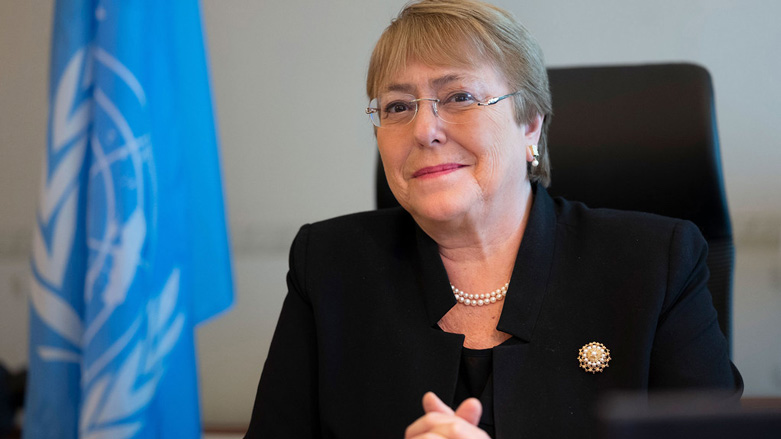UN human rights chief calls on Ankara to investigate war crimes by Turkish-backed groups in Syria
UN High Commissioner for Human Rights Michelle Bachelet on Friday called on Turkey to immediately launch an impartial, transparent, and independent investigation into multiple credible allegations of human right violations and possible war crimes by Turkish-backed groups operating in Syria.

ERBIL (Kurdistan 24) - UN High Commissioner for Human Rights Michelle Bachelet on Friday called on Turkey to immediately launch an impartial, transparent, and independent investigation into multiple credible allegations of human right violations and possible war crimes by Turkish-backed groups operating in Syria.
Investigators have documented evidence of human rights and international humanitarian law violations against civilians in areas controlled by the groups such as Afrin, Ras al-Ain, and Tal Abyad. The UN office has noted an alarming pattern in recent months of increased killings, kidnappings, unlawful transfers of people, seizures of land and properties, and forcible evictions.
“The victims include people perceived to be allied with opposing parties or as being critical of the actions of the Turkish-affiliated armed groups. They also include people seen as wealthy enough to pay ransom demands. In addition, increased infighting among the various Turkish-affiliated armed groups over power-sharing, with scant regard for the safety of the local population, continues to cause civilian casualties and damage civilian infrastructure,” the human rights body said in a press statement.
A report published on Tuesday by the UN Commission of Inquiry documented multiple human rights abuses by Turkish backed groups including systematic looting, sexual violence, and property appropriation by Turkish-backed groups, as well as “widespread arbitrary deprivation of liberty.”
Among the various instances documented include cases of at least 30 women who were reportedly raped in February alone.
The UN commission said that it is currently investigating reports that at least 49 Kurdish and Yezidi women were detained in both Ras al-Ain and Afrin by Turkish-backed groups last year.
Read More: UN: Multiple Turkish-backed groups in Syria committing sexual assault
The UN Human Rights Office also said that Turkish-affiliated armed groups have also seized and looted people’s houses, land, and other private and commercial properties “without any apparent military necessity and occupied many of them with their own families.”
It also documented “the abduction and disappearance of civilians, including women and children, among other serious human rights violations. The fate of some of these detainees and abductees remains unknown.”
“I remind all parties to the conflict in Syria that the protection of civilian life remains paramount in all circumstances,” continued Bachelet. “The blatant disregard for the safety of civilians is against human rights law and obligations under international humanitarian law that all parties, including the armed groups and those that exercise control over them, must respect.”
“I also call on the Turkish authorities to respect international law and to ensure that violations committed by armed groups under Turkey’s effective control cease,” she said.
The UN High Commissioner also voiced continued concern over repeated water disruptions caused by Turkish-affiliated groups from the Alouk water station, which affected access to water for up to one million people in the city of al-Hassakeh and surrounding areas. It also said Kurdish-led forces have been accused of hindering electricity to the water station.
Read More: Turkish-backed groups continue to cut water to thousands in northeast Syria amid COVID-19
“As we have previously warned, impeding access to water, sanitation and electricity endangers the lives of large numbers of people, a danger rendered all the more acute amid fighting a global pandemic,” concluded Bachelet.
“I call on all parties to ensure that civilians and civilian objects and infrastructure are protected from attacks and the effects of hostilities.”
Editing by John J. Catherine